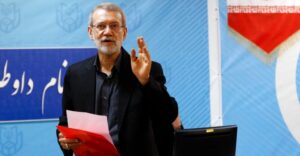Kosovo Foreign Minister Enver Hoxhaj said that Serbian President’s Aleksandar Vucic’s plan to resolve relations between Belgrade and Pristina, would be a welcome turn in Serbia’s policy towards his country.
“Breaking the silence and accepting the truth about independent and sovereignty … would open up the path for societal reconciliation, regional cooperation, European integration, and international affirmation,” Hoxhaj told BIRN.
Earlier on Monday, Vucic wrote in an article for the daily newspaper Blic that the Serbian nation must “stop burying its head in sand” on the issue of Kosovo, and start “an internal dialogue” about it.
“We must try to be realistic, not lose or give away what we have, but not expect to receive what we have lost long ago,” Vucic wrote in the article.
Kosovo declared independence from Serbia in 2008, that Belgrade has not recognised.
Vucic added that Serbs and Albanians need to find a solution which will be “permanent, exclude conflict as an option, and bring benefit to the region”.
“In order to make our progress sustainable, we must at least try to solve the Kosovo Gordian knot, not shy away and leave that burden to our children,” Vucic wrote adding that membership in the EU and economic prosperity would flow as result.
Hoxhaj said that if Vucic succeeds in transforming Serbia’s policy on Kosovo, “he will not only set his country free from historical myths and destructive politics, but also do a great favour to healing the region from the legacies of the past conflicts.”
“Now it is Serbia’s turn to undertake domestic dialogue and generate society-wide consensus on accepting and building friendly relations with Kosovo,” Hoxhaj said.
The leader of New Kosovo Alliance, AKR, a former President of Kosovo, Behgjet Pacolli, also welcomed Vucic’s comment, saying that it opens the way towards normalising relations between the countries, but “of course, closing the topic of missing persons, which is a serious wound for many families here and throughout Kosovo.”
Kosovo Albanian Nora Visoka Weller, director at the Cambridge Academy of Global Affairs, a think tank in the UK, told BIRN that it is too early to judge whether Serbia’s approach to Kosovo had changed.
“According to President Vucic’s statement, it seems like there are attempts [in Serbia] to change views, within its structures, to its own history, and this fact is welcome, especially if President Vucic encourages Serbia to face reality, which means being more realistic in relation to Kosovo,” she said.
Boban Stojanovic, from the Faculty for Political Science in Belgrade, said that it remains unlikely that Vucis is about to recognise Kosovo’s independence.
“I do not believe that he [Vucic] is ready to recognise Kosovo’s independence, but it seems like he is setting the stage for giving concessions to Pristina, whether it is giving up on the Association of Serbian Municipalities or something else,” Stojanovic told BIRN, referring to the agreement to establish an autonomous union of Serbian local authorities in Kosovo.
Ask me anything
Explore related questions





